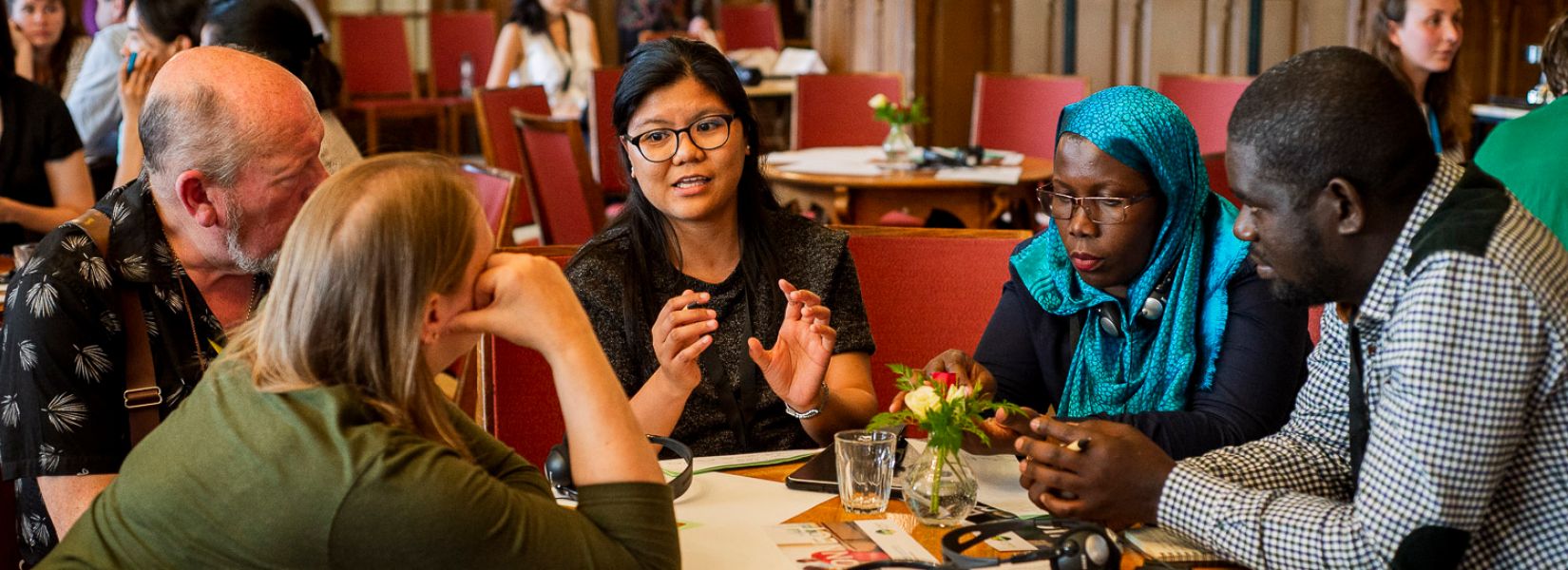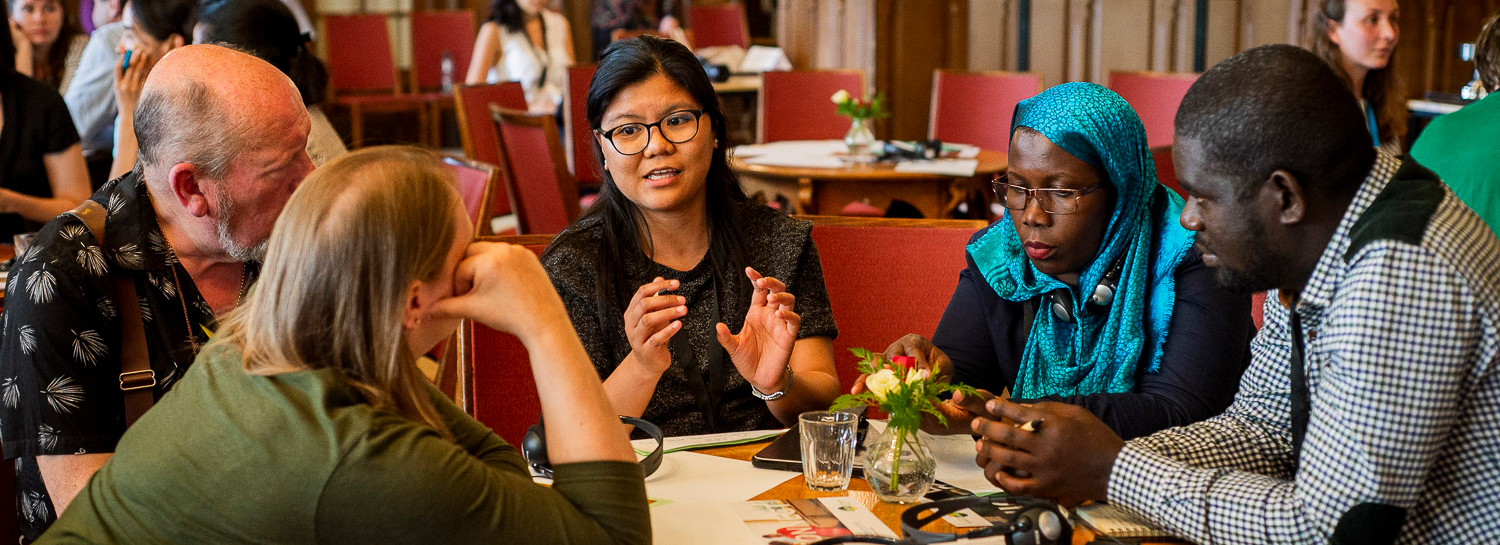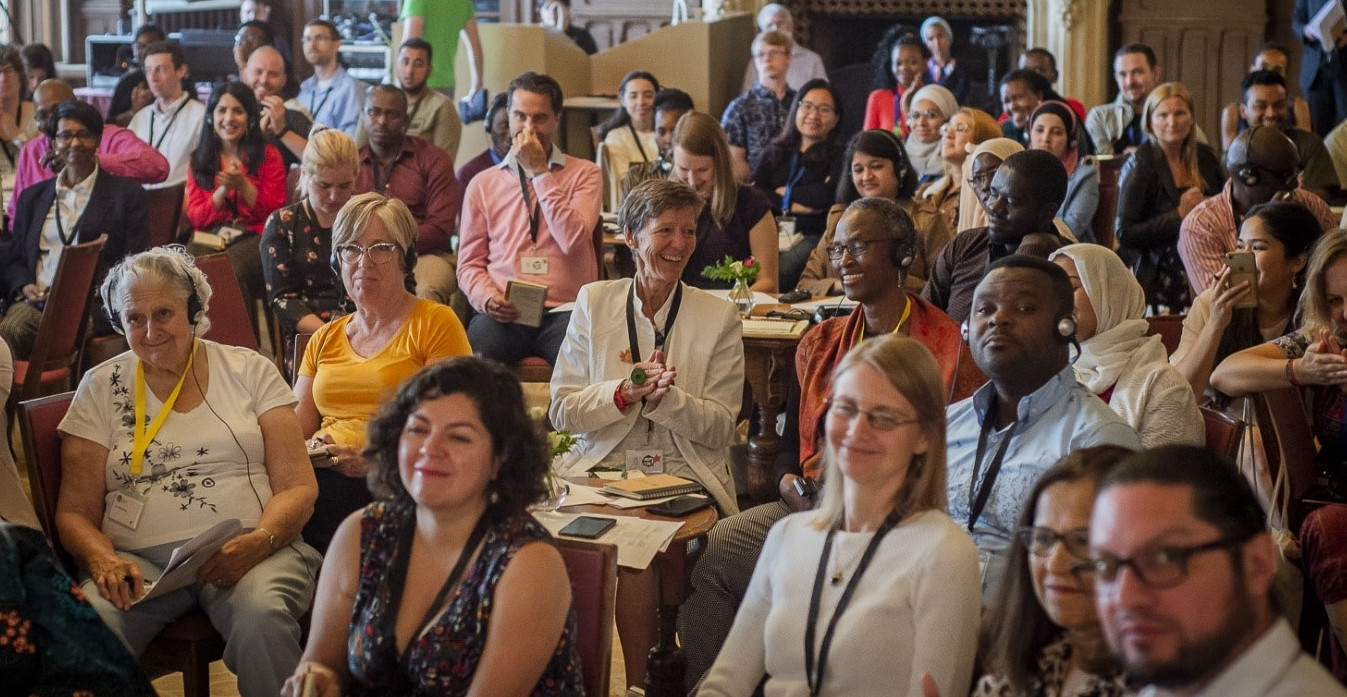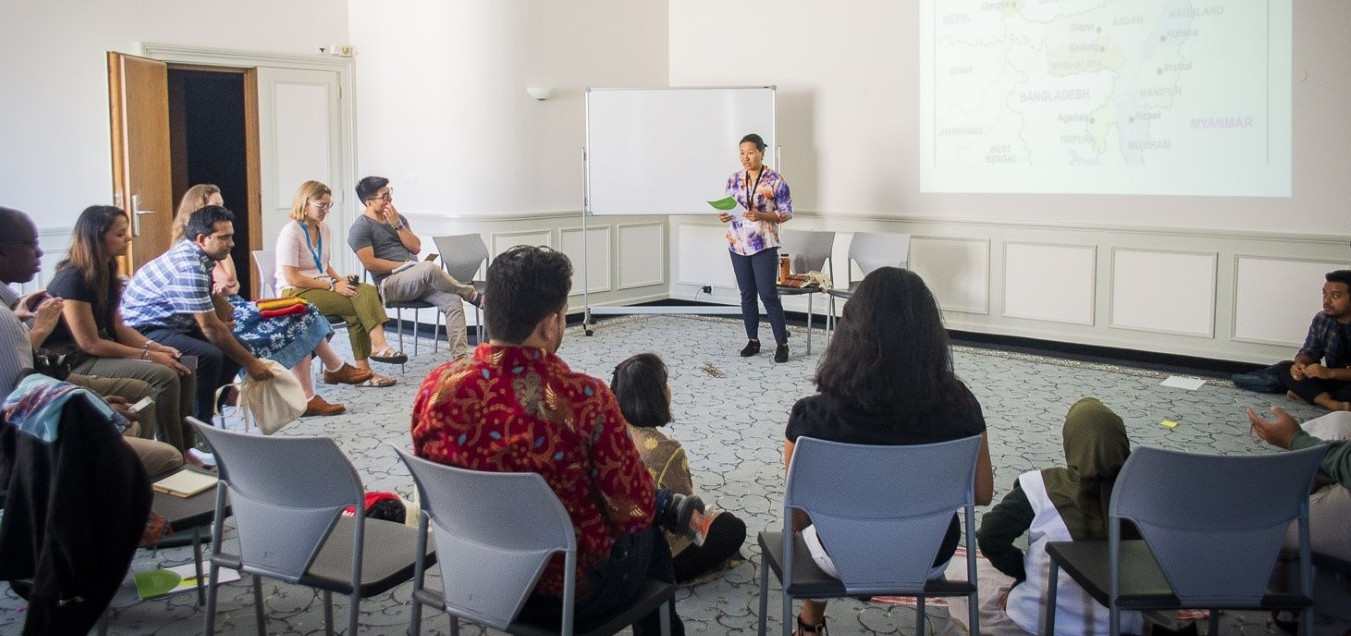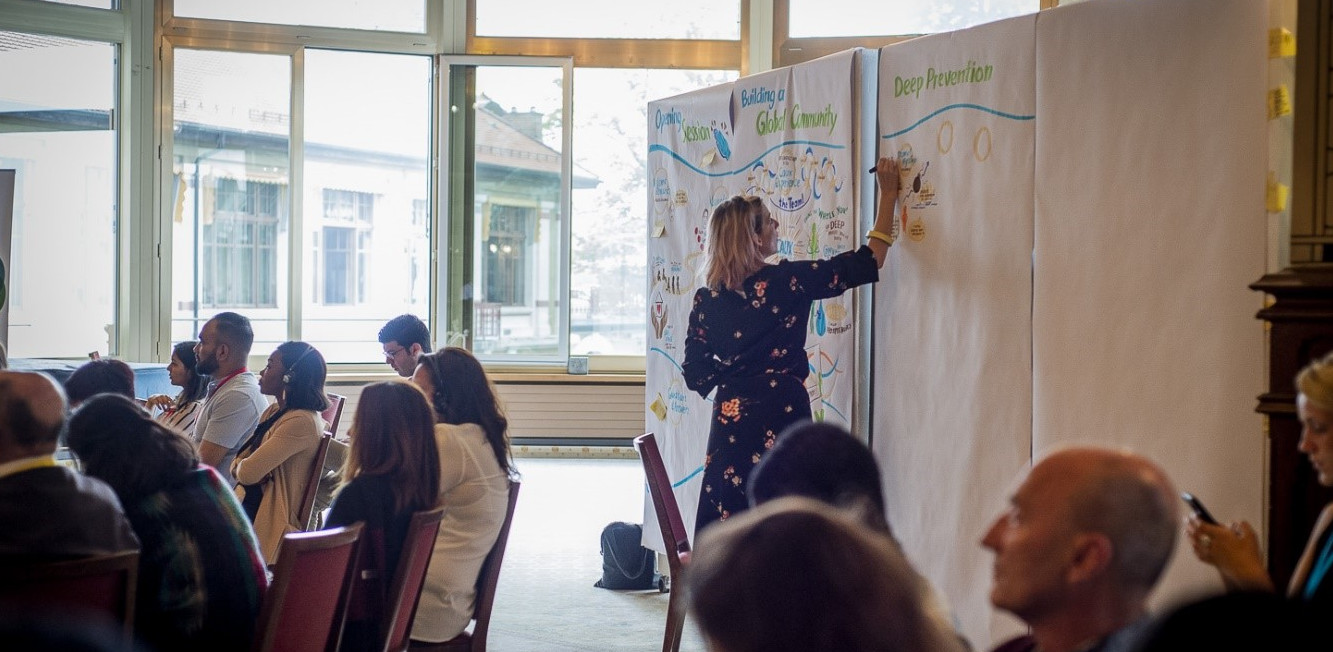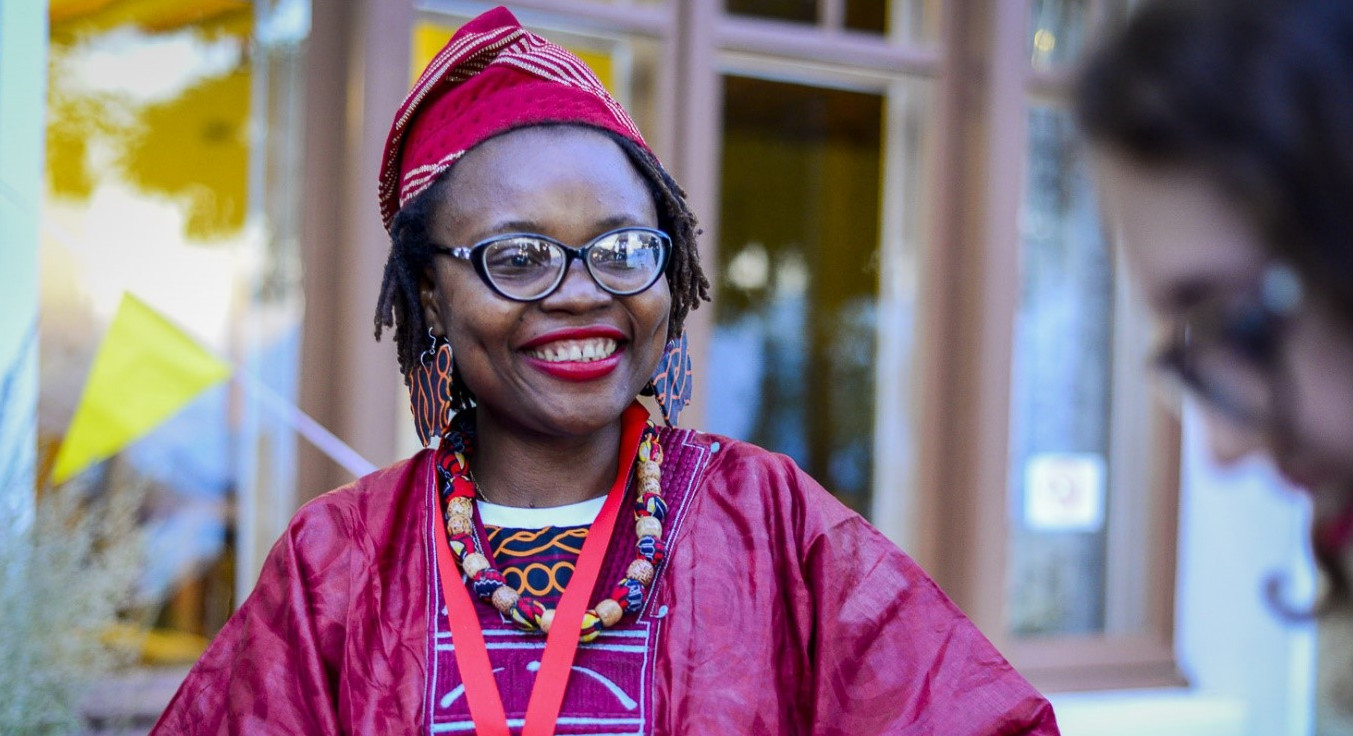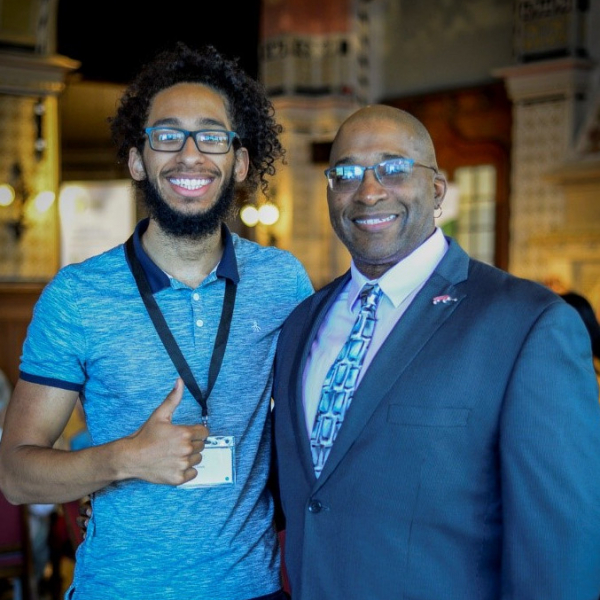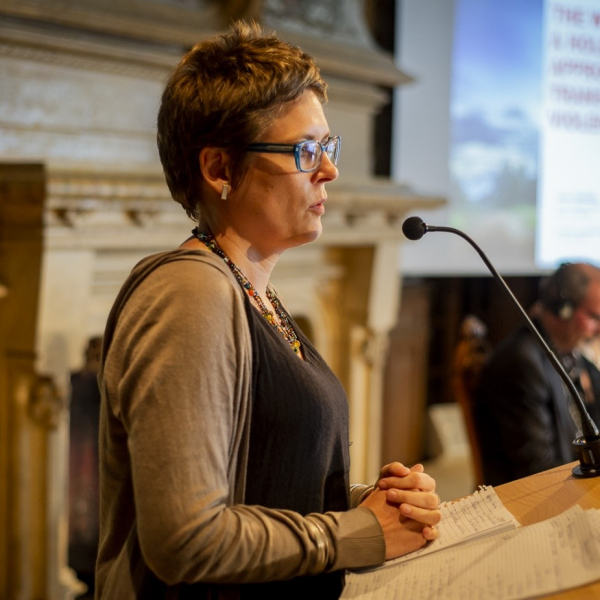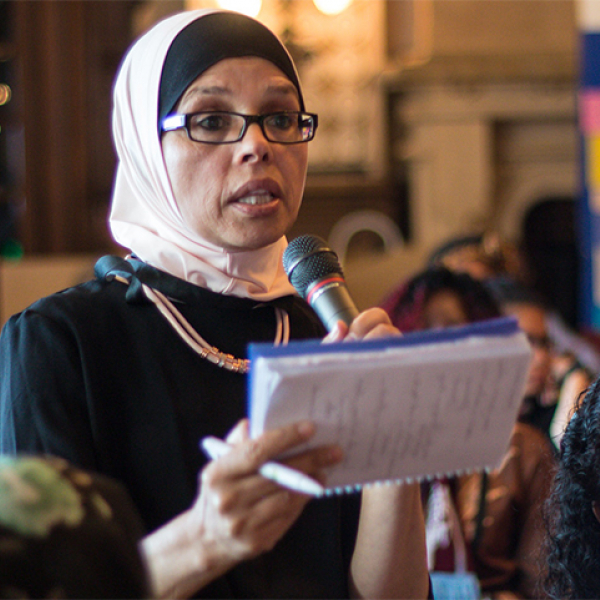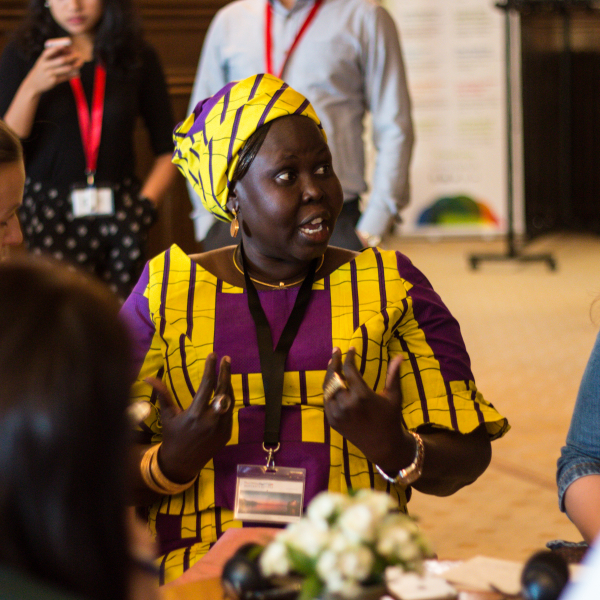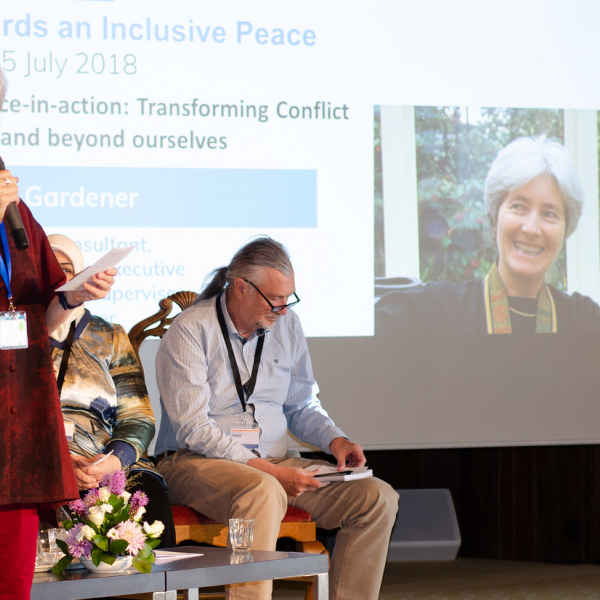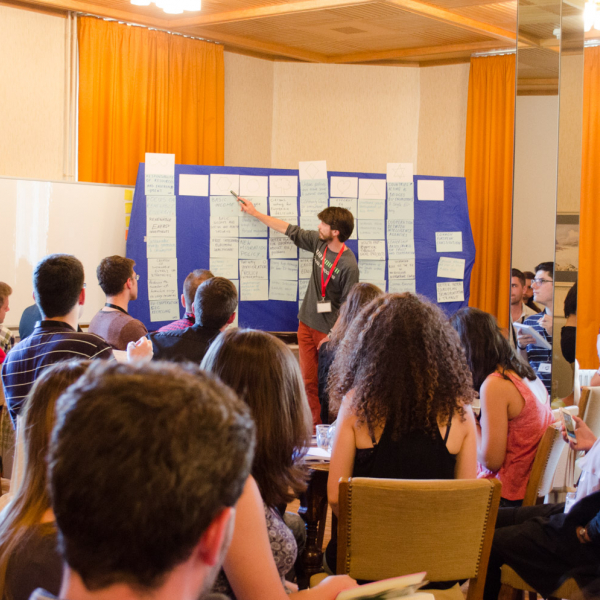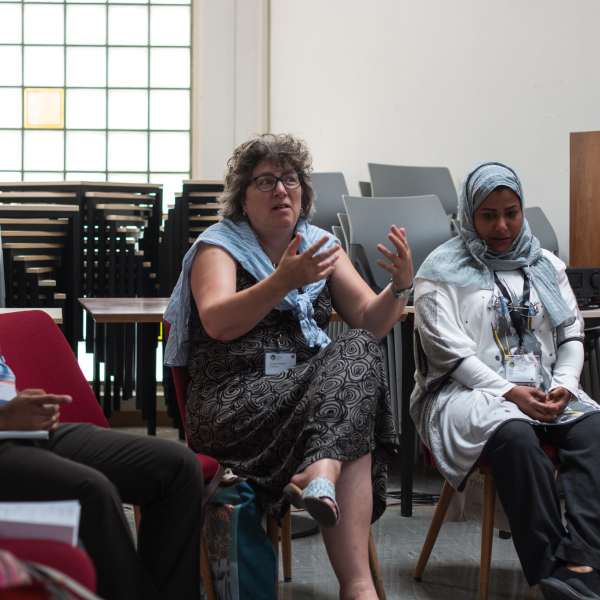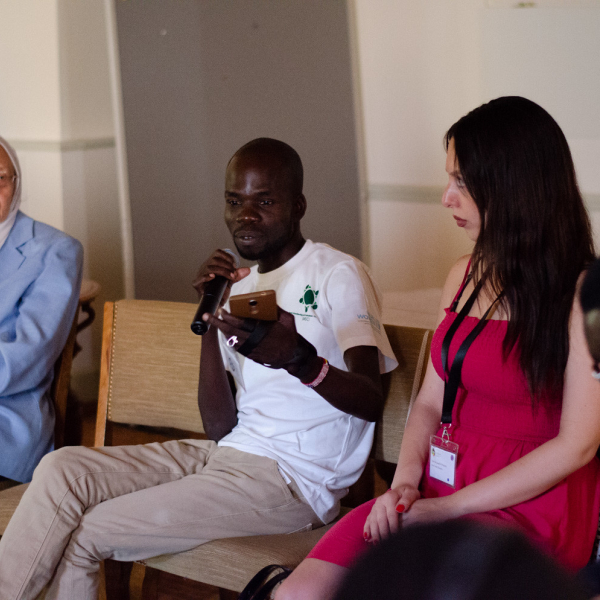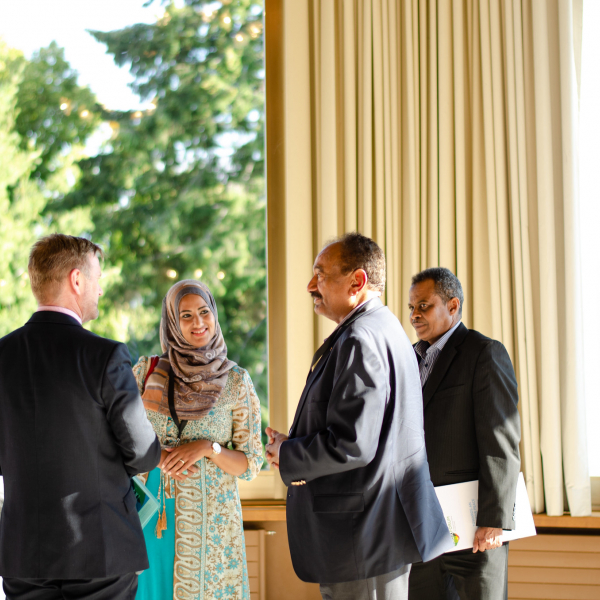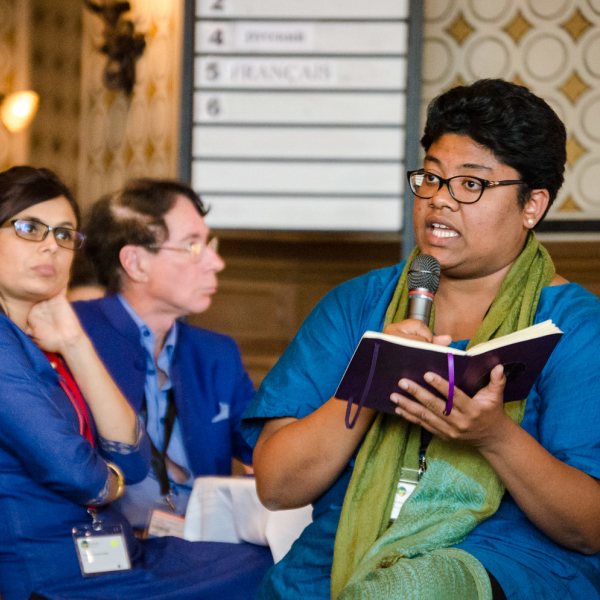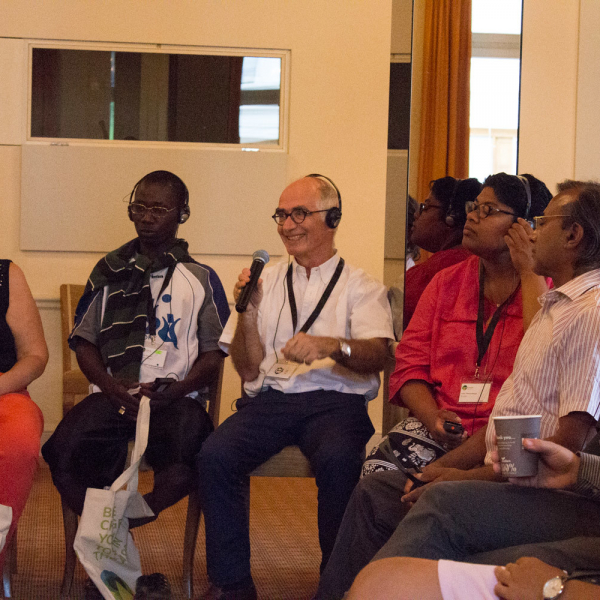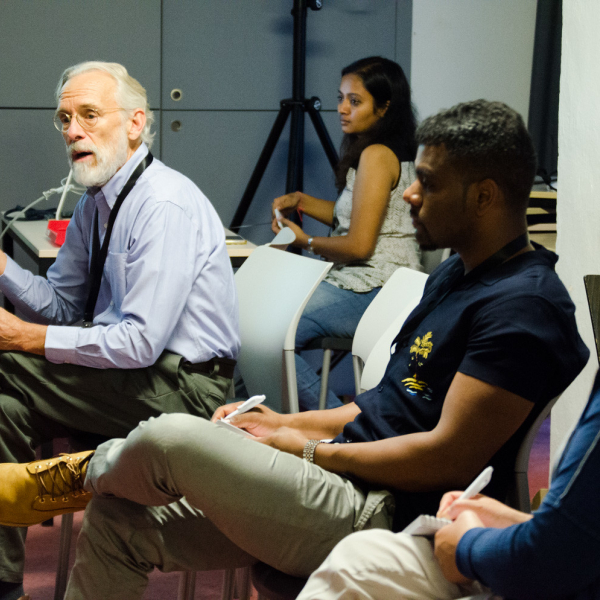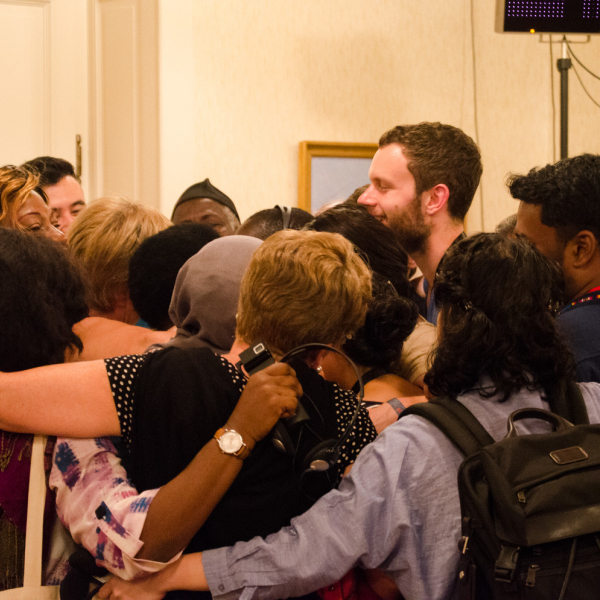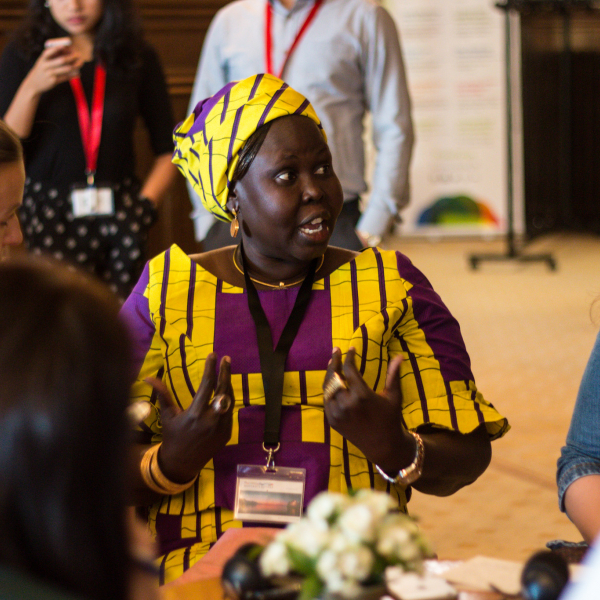Towards an Inclusive Peace 2019
Building a local and integrated approach to prevention
15/07/2019
The importance of working closely with local communities and promoting a creative and inclusive peace was at the forefront of the third and final edition of the ‘Towards an Inclusive Peace’ conference which took place from 8 to 12 July 2019 as part of the Caux Forum. While attention was focused on the victims and causes of violent extremism in 2017 and 2018, this year it focused on three subjects: deep prevention, community resilience and protection of peacebuilders. The approaches presented are based on the concepts of inclusiveness, sustainability and context-specificity.
Establishing the facts: some details on the consequences of violent extremism.
‘Violent extremism divides communities, exacerbates conflicts and destabilizes regions,’ stated Barbara Hinterman, Secretary General of Initiatives of Change Switzerland during the Conference’s opening ceremony. ‘In the countries where we work, violent extremism has killed, injured and displaced millions of people,’ continued Dr Khalid Koser, Founder and Executive Director of the Global Community Engagement and Resilience Fund (GCERF).
Taking an interest in violent extremism is critical not only for populations but also for States and the private sector. If security approaches seem inefficient, it is best to go beyond them and include local actors. Accordingly, GCERF seeks to strengthen three vital elements of community resilience: capacity building, social cohesion and equal access to opportunities.
Community resilience as a driver of change.
‘We must commit ourselves to articulating a positive vision of what we want’ said Melinda Holmes, Director of the Women’s Alliance for Security Leadership (WASL) of the International Civil Society Action Network (ICAN). Indeed, peace is not defined purely by the absence of war and violence but rather by a state where the values of justice, democracy and human rights are respected. Prevention approaches need to concentrate on both the context and the strength of the community.
As Daniel Hyslop, Director of Policy and Learning for Interpeace, recalled ‘99% of terrorism occurs in the context of armed conflict or political terror’. As a result, the context must first be understood by working with local populations. Secondly, the approach must be integrated and positive. It must allow dialogue between all the actors and prioritise community resilience.
Mercy Corps, who was represented by Emilie Tankora, a programme specialist for social cohesion, peace and conflict in Niger, has an approach that is in line with these principals. Mercy Corps’ aim is to work with local communities to understand the different realities and make projects sustainable. Their approach is two-fold: a short-term component to respond to immediate needs and a long-term one to rebuild societal links through dialogue.
The programme to prevent violent extremism presented by Lisa-Raine Hunt, Community Coordinator for the UK Home Office, also emphasizes community resources and resilience.
During interactive group workshops, participants tackled the subjects of prevention, community resilience and protection of peacebuilders. Through the life journeys of local actors, the contexts of six countries were compared and studied in-depth: Nigeria, Ukraine, India, Nepal, the United Kingdom and Indonesia.
Creativity and art in the healing process
Dr Ram Baghat, Co-founder of the Drums No Guns Foundation and the Massive Resilience Project presented his approach to promoting resilience. He showed how music and dialogue can restore the balance by encouraging dignity and respect.
‘Recognizing one’s own vulnerabilities to then be able to connect with others, and working on one’s values to engage with communities’ are two of the actions undertaken by the Fighters for Peace association in Lebanon, co-founded by Christina Foerch Saab. Theatre is used by the association as a tool to start a discussion about individual and collective memories.
Storysharing also allows people to understand how to go through the process of healing from trauma. Hasan Davis who is now a national leader in US justice juvenile reform was drawing on his personal experience when he said, ‘everybody deserves to become the hero of their own story’. The role of hope and trust, and the importance of adopting a long-term vision were more formally explained the next day during the plenary.
The varied points of view, meeting formats and discussions make the Caux Forum not only a unique place for personal inspiration and learning but also for connecting with others and oneself, just as Initiatives of Change encourages.
Keeping safe through action
Against the backdrop of a crisis in global democracy, Guissou Jahangiri, Vice-President of the International Federation for Human Rights (Fédération Internationale pour les Droits Humains, FIDH) underlined the importance of networks and connections to protect peacebuilders.
Having highlighted the failure of the international community to protect peacebuilders and the lack of recognition for peacebuilding processes, Stacey Schamber, Senior Program Officer for ICAN illustrated the importance of networks in promoting peace. As an example, she spoke about one of her peacebuilding colleagues who was held at an airport for more than seventeen hours. Through the ICAN network she was supported by other women and was able to find a solution to the situation. ‘Solidarity is a way of supporting each other and staying safe,’ she concluded.
Rodolfo Dominguez Marquéz continued this discussion with a presentation of his work as Coordinator of the Justice, Human Rights and Gender Civil Association in Mexico. He discussed several action plans to combat violence: identifying the risks with the assistance of specific methodologies then implementing protocols as well as strengthening peacebuilder networks and promoting restorative justice.
The aims of the conference have therefore been achieved: collaborations have begun while the participants feel inspired by the conference, exchanges and meetings.
The graphic summary provided by Anna Lena Schiller combines these observations with drawings and words from the participants.
Solidarity, human dignity, equity...Peace and dialogue can be promoted through a human- and community-centred approach.
- Discover the photos of the 2019 TIP conference
- Relive some of the moments by watching our interviews and coverage on Facebook
- Watch the video
